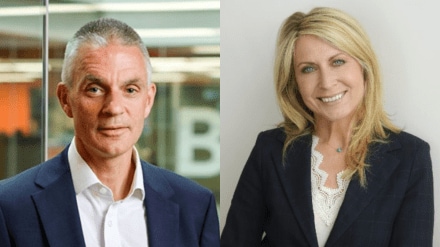The BBC’s Director-General and its news CEO both resigned on Sunday following allegations of bias and that the broadcaster edited a speech by US President Donald Trump, Reuters reported. The BBC, per a report by The Telegraph, will apologise for editing Trump’s speech in a Panorama documentary, and its Chairman will write to the Culture, Media and Sport Committee.
Tim Davie, who has served as the BBC’s Director-General since 2020, said he was stepping down after considering the “very intense personal and professional demands of managing this role over many years in these febrile times”. Deborah Turness, the CEO of BBC News, also announced her resignation.
Leaked internal report and mounting criticism
The resignations came after the Daily Telegraph published excerpts from a leaked internal report by a former BBC standards adviser, which cited editorial lapses in the network’s reporting on the Israel-Hamas conflict, transgender issues, and a segment featuring Trump.
BBC reportedly spliced together two separate parts of his speech, which made it appear as though he had incited the January 6, 2021, attack on the US Capitol. According to The Telegraph, a 19-page internal report by Michael Prescott, a former member of the BBC’s standards committee, alleged that the Panorama episode aired a week before the US election “completely misled” viewers.
“While we don’t comment on leaked documents, when the BBC receives feedback, it takes it seriously and considers it carefully. Michael Prescott is a former adviser to a board committee where differing views and opinions of our coverage are routinely discussed and debated,” a BBC spokesperson has told The Telegraph.
The episode in question
The Panorama episode, a documentary series by the BBC, aired on October 28 last year. In it, Trump appeared to tell voters that they will “fight like hell” and if they don’t, they won’t have a “country anymore”. “We’re gonna walk down to the Capitol and I’ll be with you and we fight. We fight like hell and if you don’t fight like hell, you’re not gonna have a country anymore,” Trump said in the doctored speech.
However, this was not what he actually said. The first half of that sentence, “We’re gonna walk down to the Capitol and I’ll be with you,” came 15 minutes later in his speech, while the second part, “We fight like hell…,” was delivered nearly 40 minutes later.
Trump, per the internal report titled “BBC Bias”, actually said, “We’re gonna walk down, and I’ll be there with you, we’re gonna walk down, we’re gonna walk down any one you want but I think right here, we’re gonna walk down to the Capitol and we’re gonna cheer on our brave senators and congressmen and women.”
Not just this, he also demanded peace, saying, “I know that everyone here will soon be marching over to the Capitol building to peacefully and patriotically make your voices heard.” But, the BBC not only merged two different parts of the speech, but also removed his peace appeal to the crowd, the memo said.
What’s more is that The Proud Boys, a far-right group, began marching towards the Capitol before Donald Trump started his speech, contrary to the suggestion made by the documentary, the whistleblower alleged.
‘Very dishonest people’: Trump
Trump has celebrated their departures from the news company, calling both executives “very dishonest people”.
“The TOP people in the BBC, including TIM DAVIE, the BOSS, are all quitting/FIRED, because they were caught ‘doctoring’ my very good (PERFECT!) speech of January 6th,” Trump wrote on Truth Social on Sunday evening.
“Thank you to The Telegraph for exposing these Corrupt ‘Journalists’. These are very dishonest people who tried to step on the scales of a Presidential Election,” he added.
Lisa Nandy, Secretary of State for Culture, Media and Sport, reacted to the news. “I want to thank Tim Davie for his service to public broadcasting over many years,” she wrote on X (formerly Twitter), before adding, “He has led the BBC through a period of significant change and helped the organisation to grip the challenges it has faced in recent years.”
She went on to say, “The BBC is one of our most important national institutions. Every day, it tells the story of who we are – the people, places and communities that make up life across the UK. Now more than ever, the need for trusted news and high quality programming is essential to our democratic and cultural life, and our place in the world.”
“As a government, we will support the Board as it manages this transition and ensure that the Charter Review is the catalyst that helps the BBC to adapt to this new era and secures its role at the heart of national life for decades to come,” she concluded.
